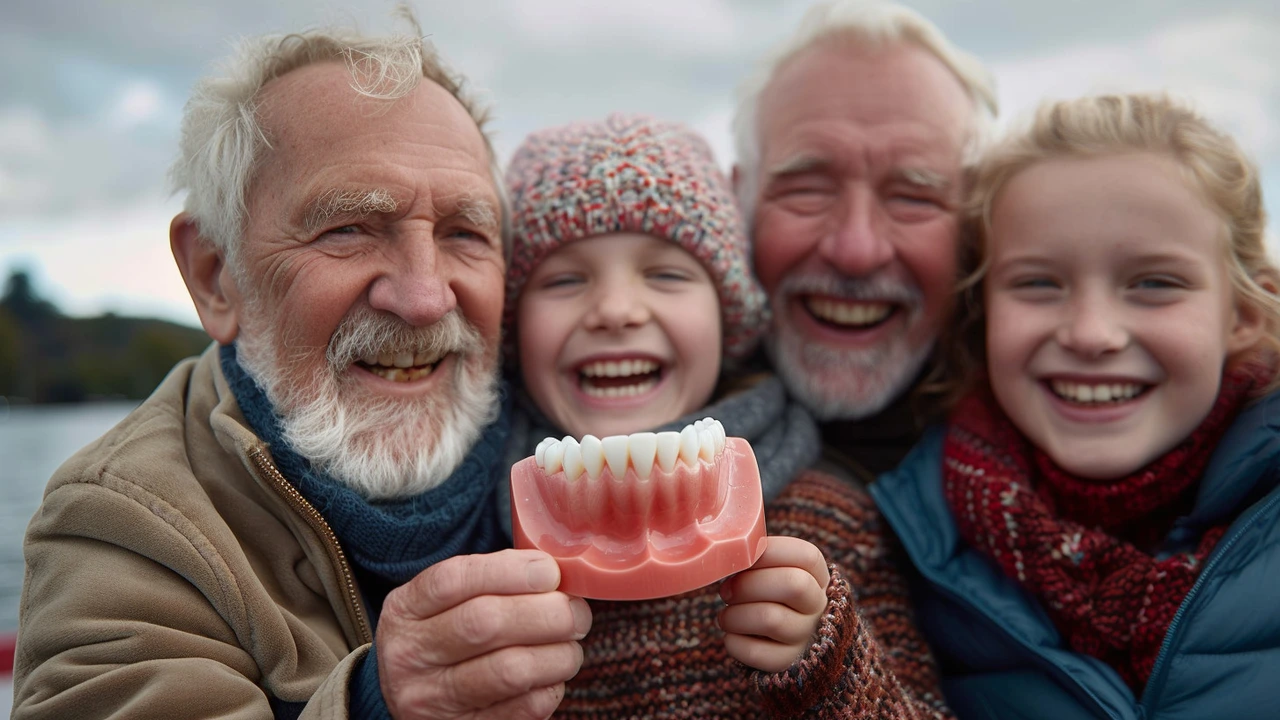
The Teeth Truth: Unraveling the Mysteries of Your Pearly Whites
Have you ever considered that each of your individual teeth might carry a secret? That each one of them whispering their tales of strength and endurance? Well, it's true. Each tooth you own has its own identity and, fun fact, every tooth in your mouth reflects different aspects of your health. Let's meet these unsung heroes residing in our mouth and the important messages they bring us about our health.
Decoding Dental Types: Understanding Your 32
For starters, humans have 32 teeth, including the wisdom ones. Yes, the very same that bring wisdom with an unwanted surprise of discomfort. But don't let that intimidate you. Each tooth has a role to play. Our 8 incisors, those sharp ones in the front, hold the responsibility of ripping and cutting through food. Then the canines, with a bit of a vampiric reputation come next. Located on either side of the incisors, they're our piercing and tearing experts. Following them are the premolars or bicuspids, who take on the task of crushing and grinding our food, and finally, the molars at the very back, they're our grinding powerhouses.
The Incisive Incisors: What are They Saying?
Remember when Alyssa, my dear wife, had to rush me to the dentist because my incisor chipped while opening a beer bottle during a Superbowl game? Silly as it might sound, it was a wake-up call about the standard 'no-cap-opening' function of my incisors. A chipped, cracked or broken incisor can indicate calcium deficiency or, at times, presence of certain eating disorders. If your incisors are eroding, it could suggest an excessive consumption of acidic beverages or even gastroesophageal reflux disease.
Communicative Canines: Listen to Them Carefully
Our canines, or the 'cornerstones' of our smile as my dentist loves to refer them, can share vital insights into our health too. Canine wear is generally associated with aging, but premature wearing could suggest bruxism - the grating nocturnal habit of grinding your teeth and clenching your jaw. Constant sensitivity in this area could also be indicative of receding gums or gingivitis. Even canine grinding can give a peep into our stress levels - more stress means more grinding.
The Significant Story of Premolars
Now, let's delve deeper into the land of bicuspids or premolars. They usually get the spotlight when we talk about dental crowns or bridges. If you're experiencing sensitivity in this area, cavities could be the culprits caused by excessive sugar intake or poor oral hygiene. In some instances, an infected premolar can be an indicator of an underlying sinus issue, as sinus cavities are situated directly above this area. Always listen to your premolars - they may be signaling something rooted deeper than just a mere toothache.
Molar Matters: What Do They Wish to Convey?
Moving further, let's talk about the biggest grinders, our molars. Tooth pain or sensitivity in this area often suggests that something's wrong. Cavities, tooth decay, gum disease, or even an impacted wisdom tooth could be the reasons. Climate influences them too. Ever noticed sensitivity pain while having a scoop of your favorite ice cream or sipping a hot cup of coffee? Our molars take the hit for sudden temperature changes. Listen to them, they're probably asking you to cut down on those sweet indulgences.
Wisdom Comes with Pain: The Tale of Wisdom Teeth
Finally, let's chat about the so-called 'wisdom' teeth. These late bloomers are more well-known for causing trouble than spreading wisdom. From causing discomfort as they break through to becoming impacted in a crowded mouth - they indeed create a commotion. But on a positive note, they don't shy away from announcing issues like oral infections or gum disease. So in case of a rebellion from these wise guys, it might be ideal to reach out to your dentist.
So, there it is – our bodies have an amazing way of communicating with us, and it often begins right in our mouth. Each tooth has a story to tell, an indicator of our wellness, waiting to be interpreted correctly. So next time you brush your teeth, remember each of your 32 will thank you more if you listen to them closely, because, to repeat the old saying, 'Prevention is better than cure!'
Write a comment
More Articles

Best Tips: Preparing for Veneers to Fix Crooked Teeth
Discover how to prepare for getting veneers if you have crooked teeth. Learn about the benefits, steps, and tips to ensure a smooth procedure and successful outcome. Understand the choices available, what to expect during the process, and how to care for your new smile.

How whitening toothpaste helps fight stains on teeth.
Hi there! Ever wonder how your trusty tube of whitening toothpaste tackles those stubborn teeth stains? Well, I'm here to unravel that for you. Whitening toothpaste contains special ingredients that gently scrub off stains, revealing a brighter smile. This post will provide insights on how whitening toothpastes work, and why they are a crucial part of your daily dental hygiene routine. Stay tuned, and let's journey into the world of tooth discoloration together!

How to Remove Dental Tartar to Boost Your Breath
Removing dental tartar is key to improving your breath. Tartar, a hard deposit that forms on your teeth, harbors bacteria causing bad breath. This article explains how regular tartar removal can enhance your oral hygiene and breath. Discover tips for preventing tartar buildup and methods for effective removal.


